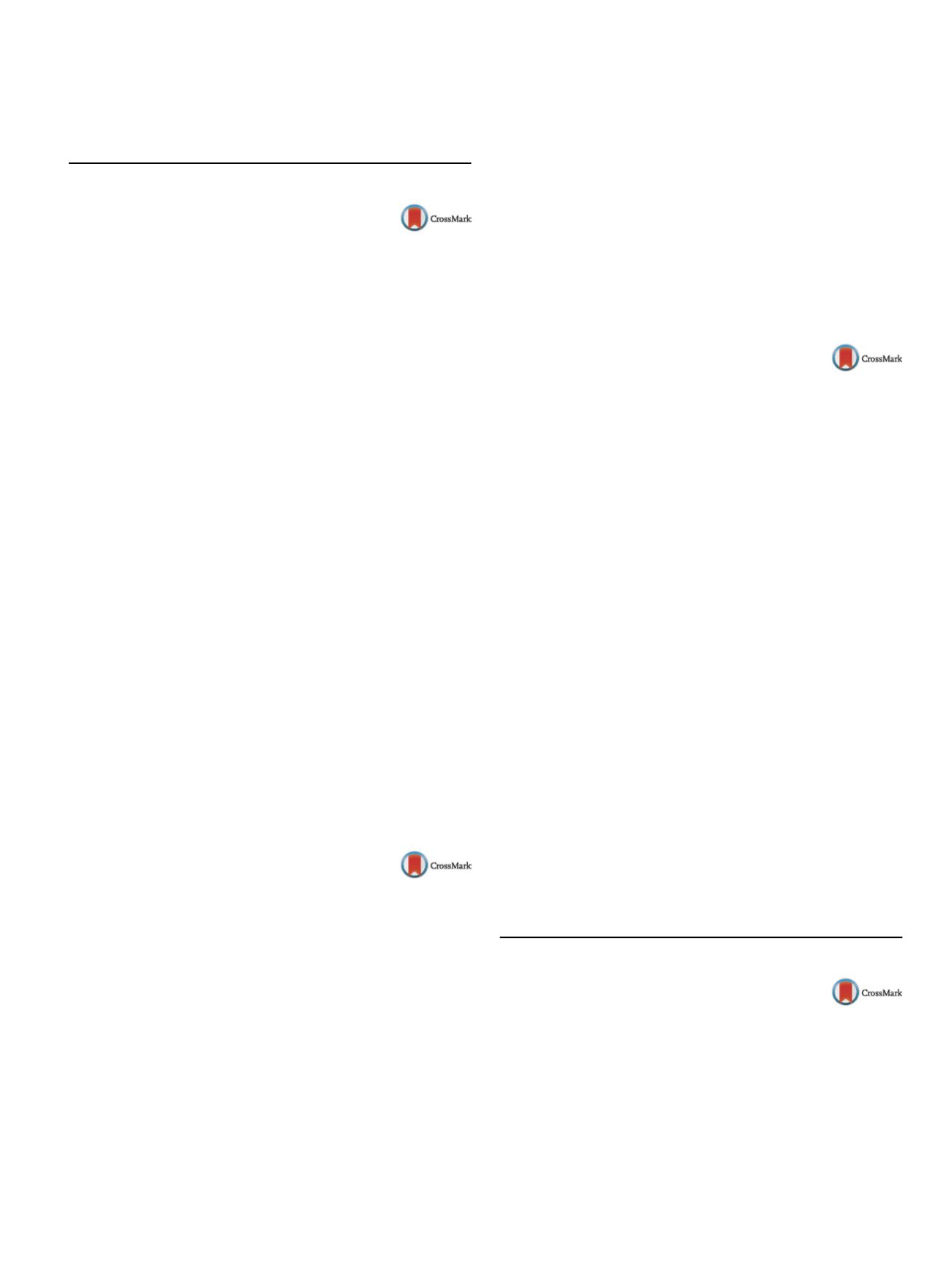

25th European Congress of Psychiatry / European Psychiatry 41S (2017) S53–S68
S61
Workshop: Forensic psychiatry in Europe in 2017:
Discussing similarities and differences of five
national systems
W026
Forensic care in italy: Changes,
illusions and realities
G. De Girolamo
∗
, V. Bulgari
Saint John of God Clinical Research Center, Psychiatric Epidemiology
and Evaluation Unit, Brescia, Italy
∗
Corresponding author.
Violence and the risk of violence posed by patients with severe
mental illness is a major public health problem for many rea-
sons. Firstly there is the obvious harm to victims, secondly the
counter-therapeutic effect on patients of the violence itself, thirdly
the restrictive measures typically deployed by services to manage
the violence, and finally the significant additional financial cost of
these specialist services. Within mental health services the some-
times inaccurate estimate of risk of violence posed by patients can
lead to the frequent use of a variety of coercive measures includ-
ing involuntary hospitalization, enforced medication, restraint and
seclusion. These restrictive and costly interventions are almost
unanimously perceived as traumatic by the patients and can, in
turn, trigger frustration, therapeutic resistance and even aggression
instead of treatment adherence and cooperation.
Services for the treatment of psychiatric patients who pose a risk
of violence are developing and maturing across Europe. New mod-
els of care for this extremely complicated multiple needs clinical
population exist. However across Europe intervention strategies
and service organization and delivery for these patients are very
different, and have never been comparatively evaluated. The
lack of reliable comparative data has prevented many European
countries benefiting from innovative strategies already tested in
those countries which have made the greatest efforts in research
and service innovation. In this workshop we will compare the
organization and functioning of forensic mental health services in
different countries; inparticular this presentationwill informabout
the recent changes in forensic mental health services occurred in
Italy.
Disclosure of interest
The authors have not supplied their decla-
ration of competing interest.
http://dx.doi.org/10.1016/j.eurpsy.2017.01.049W027
Forensic care in France
T. Fovet
∗
, P. Thomas
CHRU de Lille, Nord, Lille, France
∗
Corresponding author.
In France, the number of inmates with psychiatric disorders has
grown substantially during the last two decades. In this context,
significant changes occurred in France’s forensic psychiatry service
provision in recent years. Especially, full-time inpatient units for
inmates (called unités d’hospitalisation spécialement aménagées,
UHSA) have been created in 2010. These changes clearly improved
access to mental health care for inmates. Moreover, some recent
trends in indicators such as the suicide rate in French prison, which
has fallen slightly, are promising
[1] .However, the practice of psy-
chiatry in prisons is a subject of debate between the proponents
of the development of a specific care system for inmates and those
considering that psychiatric teams must stay out of prison. One
should insist on the dichotomy between the justice system and the
health system, which appears constitutional in France. Indeed, the
professional independence of caregivers from the judiciary system
and the medical confidentiality are fundamental values on which
French model has been built. Furthermore, the improvement of the
quality of health care in prisons could alarmingly lead the judges
to preferentially choose imprisonment for patients suffering from
mental disorders committing offences while prison should in no
way be considered as a patient care setting. This trend is evidenced
by the low rate of individuals judged irresponsible for their crime
because of mental health status currently observed in France.
Disclosure of interest
The authors have not supplied their decla-
ration of competing interest.e
Reference
[1] Fovet T, Thomas P, Adins C, Amad A. France’s forensic psychia-
try provision: the long and winding road. The Lancet Psychiatry
2015;2:e20.
http://dx.doi.org/10.1016/j.eurpsy.2017.01.050W028
Forensic care in Germany
H. Dressing
1 ,∗
, H.J. Salize
21
Germany
2
Central Institiute of Mental Health, Psychiatry, Mannheim, Germany
∗
Corresponding author.
Although the idea that offenders suffering from a mental dis-
order must primarily be considered as ill and should therefore
be exempted from punishment is of considerable antiquity legal
frameworks and key concepts, which are applied in this field, dif-
fer widely in European Union member States. The respective legal
regulations and epidemiological data of Germanywill be presented.
In German penal law the question of the guilt of an offender is of
central significance. Legal regulations on the placement and treat-
ment of mentally ill offenders in a forensic psychiatric hospital
are subsumed under the section “Measures on improvement and
safety”. Section 63 of the German penal law provides for the tem-
porally unlimited commitment to a forensic- psychiatric hospital.
In accordance with section 64 of the German penal law addicted
offenders can be committed to a detoxification center for a period
of up to two years. The available epidemiological data show a clear
increase in the admissions to forensic psychiatric hospitals and to
detoxification centers since beginnings of the 1990s. Recently the
German parliament passed a new law. The aim of the new law is to
strengthen patients’ rights and to diminish the number of forensic
patients.
Disclosure of interest
The authors have not supplied their decla-
ration of competing interest.
http://dx.doi.org/10.1016/j.eurpsy.2017.01.051Workshop: Allostasis insulin and the brain:
Implications for the disease modeling and
treatment in psychiatry
W029
Insulin resistance and telomere length
in treatment of depressive disorders
N. Rasgon
1 ,∗
, B . McEwen
2 , K.W. Lin
31
Stanford University School of Medicine, Psychiatry and Behavioral
Sciences, Stanford, USA
2
The Rockerfeller University, Harold and Margaret Milliken Hatch
Laboratory of Neuroendocrinology, New York, USA
3
Stanford university, Center for Neuroscience in Women’s Health,
Stanford, USA
∗
Corresponding author.
Insulin resistance and markers of Allostatic load in depression


















